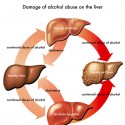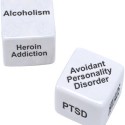Drug Addiction Treatment Facility
Being addicted to drugs is a very serious issue. While in the early stages, it may be possible for a person to go cold turkey, on their own, but this is very rare. Most people need to seek the help of a drug addiction treatment facility. There are many different reasons why these facilities work when going it on your own does not. If you realize that you are addicted to a drug (and recognizing this is the first step to recovery), you may wish to seek out one of these treatment facilities and get help.
When you arrive at a drug addiction treatment facility, you will most likely go through a basic interview after being admitted. This interview will be a one on one talk with a professional at the facility. You will be asked about your drug habits and how they have affected your life. It’s very important that you be open and honest in this interview. A treatment facility is not going to work if you aren’t honest about everything during every step of the way. If you resist treatment, argue with your therapist, or try to hide things you did while on drugs, you will hamper your own recovery process.
Working daily with your therapist is one of the main reasons a drug addiction treatment facility works. You are not attempting to break your drug habit on your own. Your therapist will be able to help you through the withdrawal stage by telling you exactly what to expect and by being there for you. He or she is going to be your primary support system while you are in a facility. Remember that even if what they’re saying doesn’t seem to make sense at the time or even if you do not like the treatment they are suggesting, they have worked with many addicts before, and their methods are tried and tested.
Another support group you will encounter in your treatment is fellow addicts. You will most likely have a group therapy session at least a few times a week, if not more often. These group sessions involve talking about your addiction with others who have gone through the same types of experiences. You can gain valuable insights from hearing about how others fought their addictions. You may even realize that you did some of the same things these other people did without even knowing it. Here, it’s important that you don’t judge others. The group therapy session is designed to be a time of honesty and support, not a time to tell others what they did wrong. The other people in your group session are there to support you, and you should provide them support in return.
Finally, a drug addiction treatment facility works by more or less taking you out of your life for a short period of time. During this time, everything that you used to focus and stress over is gone. You have only one goal: getting over your addiction. You also can’t backslide. Without access to drugs, you can rest assured that you won’t be able to give in or have “just one last time.”
source: http://www.buzzle.com


